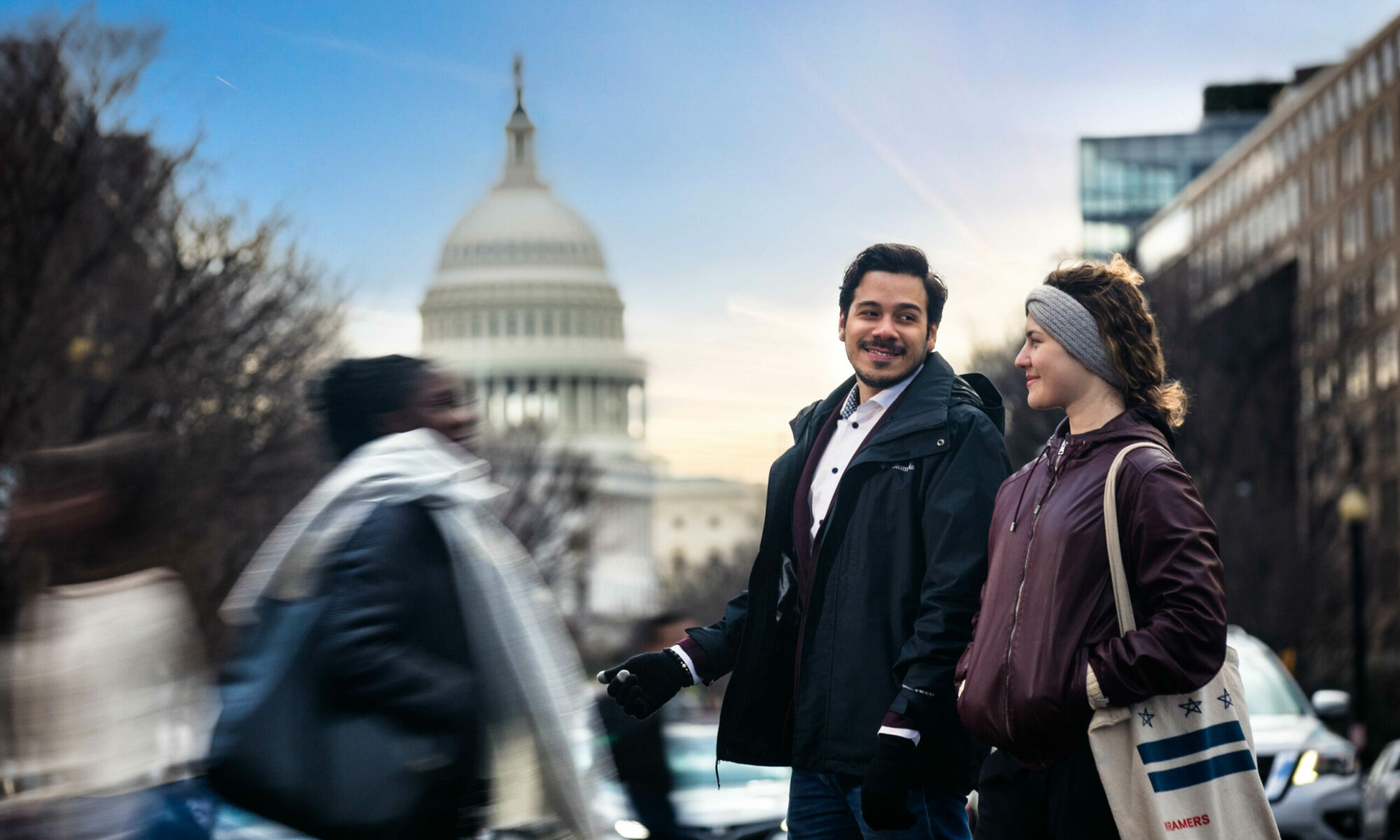
The world grieved this week for Pope Francis. Tears of sadness flowed not only from Catholics but from diverse communities of goodwill across the globe. There was something transcendent about the broad and cross-cutting appeal of Pope Francis, a leader that the world needed at this period in time. We seek to live in hope that his legacy of leadership, service, and moral example will endure. Georgetown was particularly impacted by the life of Pope Francis, which the university memorialized in this webpage detailing the myriad ways that Georgetown has been inspired by his moral and spiritual leadership.
This week, in addition to services occurring on the Hilltop Campus, multiple events taking place on Capitol Campus honored Pope Francis and assisted our downtown community in grieving. Taize Prayer, which is an ecumenical style of meditative worship through song, took place on Tuesday evening in the St. Thomas More Chapel in McDonough Hall of the Georgetown University Law Center. A portion of that prayer was reserved for reflecting on the life of Pope Francis and hearing aloud a portion of his last public address. On Wednesday morning, Catholic Mass in the St. Thomas More Chapel continued honoring Pope Francis by dedicating that service to him. Special petitions and a homily about how Pope Francis brought the Gospel to life in his devotion to lifting up the most marginalized and vulnerable people, particularly migrants and refugees, focused the community’s attention on how living up to his example means standing up for these communities today.
As an urban planner trained in Ignatian spirituality and devoted to the mission of Jesuit education, I think one of the most underappreciated legacies of Pope Francis is his commitment to sustainable urban development. Pope Francis was an insightful urbanist, which is evidenced by his writing in “Laudato Si,’” a formative teaching document about the environmental crisis created by human-induced climate change (see especially paragraphs 147-155). Pope Francis understood the major challenges facing cities around the world because he experienced them from the perspective of the poor and the people most negatively impacted by inadequate urban systems like housing, transportation, and public space. He literally rode the buses of Buenos Aires as its archbishop. As a result of his bottom-up, lived experience, Pope Francis assessed the wellness of urban communities on the basis of how they advanced justice, sustainability, and equity for those most overlooked by those in power. The most recent SCS Dean’s Report explored how the School has answered this particular call of Pope Francis in supporting sustainable urban development.
I hope this time of transition in the leadership of the Catholic Church provides opportunities to remember the indelible marks that Pope Francis has left on the world. May our university community discern well how we want to put into practice all that we have learned from his earthly example.
